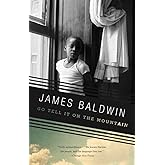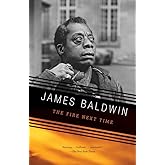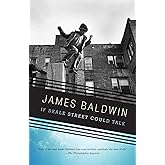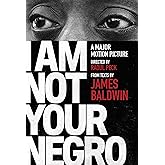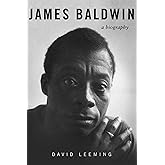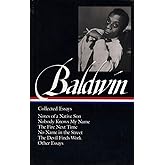
Enjoy fast, free delivery, exclusive deals, and award-winning movies & TV shows with Prime
Try Prime
and start saving today with fast, free delivery
Amazon Prime includes:
Fast, FREE Delivery is available to Prime members. To join, select "Try Amazon Prime and start saving today with Fast, FREE Delivery" below the Add to Cart button.
Amazon Prime members enjoy:- Cardmembers earn 5% Back at Amazon.com with a Prime Credit Card.
- Unlimited Free Two-Day Delivery
- Streaming of thousands of movies and TV shows with limited ads on Prime Video.
- A Kindle book to borrow for free each month - with no due dates
- Listen to over 2 million songs and hundreds of playlists
- Unlimited photo storage with anywhere access
Important: Your credit card will NOT be charged when you start your free trial or if you cancel during the trial period. If you're happy with Amazon Prime, do nothing. At the end of the free trial, your membership will automatically upgrade to a monthly membership.
Buy new:
$15.89$15.89
Ships from: Amazon.com Sold by: Amazon.com
Save with Used - Good
$9.00$9.00
Ships from: Amazon Sold by: LlerenaResells

Download the free Kindle app and start reading Kindle books instantly on your smartphone, tablet, or computer - no Kindle device required.
Read instantly on your browser with Kindle for Web.
Using your mobile phone camera - scan the code below and download the Kindle app.



 Audible sample
Audible sample Notes of a Native Son (Beacon Classics) Paperback – November 20, 2012
Purchase options and add-ons
#26 on The Guardian's list of 100 best nonfiction books of all time, the essays explore what it means to be Black in America
In an age of Black Lives Matter, James Baldwin's essays on life in Harlem, the protest novel, movies, and African Americans abroad are as powerful today as when they were first written. With films like I Am Not Your Negro and the forthcoming If Beale Street Could Talk bringing renewed interest to Baldwin's life and work, Notes of a Native Son serves as a valuable introduction.
Written during the 1940s and early 1950s, when Baldwin was only in his twenties, the essays collected in Notes of a Native Son capture a view of black life and black thought at the dawn of the civil rights movement and as the movement slowly gained strength through the words of one of the most captivating essayists and foremost intellectuals of that era. Writing as an artist, activist, and social critic, Baldwin probes the complex condition of being black in America. With a keen eye, he examines everything from the significance of the protest novel to the motives and circumstances of the many black expatriates of the time, from his home in “The Harlem Ghetto” to a sobering “Journey to Atlanta.”
Notes of a Native Son inaugurated Baldwin as one of the leading interpreters of the dramatic social changes erupting in the United States in the twentieth century, and many of his observations have proven almost prophetic. His criticism on topics such as the paternalism of white progressives or on his own friend Richard Wright’s work is pointed and unabashed. He was also one of the few writing on race at the time who addressed the issue with a powerful mixture of outrage at the gross physical and political violence against black citizens and measured understanding of their oppressors, which helped awaken a white audience to the injustices under their noses. Naturally, this combination of brazen criticism and unconventional empathy for white readers won Baldwin as much condemnation as praise.
Notes is the book that established Baldwin’s voice as a social critic, and it remains one of his most admired works. The essays collected here create a cohesive sketch of black America and reveal an intimate portrait of Baldwin’s own search for identity as an artist, as a black man, and as an American.
- Print length208 pages
- LanguageEnglish
- PublisherBeacon Press
- Publication dateNovember 20, 2012
- Dimensions5.47 x 0.61 x 8.45 inches
- ISBN-109780807006238
- ISBN-13978-0807006238
Discover the latest buzz-worthy books, from mysteries and romance to humor and nonfiction. Explore more

Explore your book, then jump right back to where you left off with Page Flip.
View high quality images that let you zoom in to take a closer look.
Enjoy features only possible in digital – start reading right away, carry your library with you, adjust the font, create shareable notes and highlights, and more.
Discover additional details about the events, people, and places in your book, with Wikipedia integration.
Frequently bought together
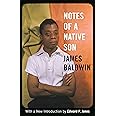
More items to explore
Editorial Reviews
Review
—Ta-Nehisi Coates
“Throughout his writing, Baldwin never shies away from a frank and disquieting acknowledgement of feelings.” —The Guardian
“The wonderful thing about writers like Baldwin is the way we read them and come across passages that are so arresting we become breathless and have to raise our eyes from the page to keep from being spirited away.”
—Edward P. Jones, from his new introduction
“Written with bitter clarity and uncommon grace.”
—Time
“A straight-from-the-shoulder writer, writing about the troubled problems of this troubled earth with an illuminating intensity.”
—Langston Hughes, The New York Times Book Review
“He named for me the things you feel but couldn’t utter . . . articulated for the first time to white America what it meant to be American and a black American at the same time.”
—Henry Louis Gates Jr.
“I owe a tremendous debt to the example of his work.”
—John Edgar Wideman
“Baldwin’s vision, his humor, his tragically beautiful style, make this a book [to] . . . turn to for a long time.”
—Kay Boyle, The American Scholar
About the Author
Edward P. Jones is the author of the Pulitzer Prize–winning novel The Known World. He won the Hemingway Foundation/PEN Award and was a finalist for the National Book Award for his debut collection of stories, Lost in the City. His second collection, All Aunt Hagar’s Children, was a finalist for the PEN/Faulkner Award for Fiction.
Excerpt. © Reprinted by permission. All rights reserved.
I did not know James Baldwin the essayist before my first year of college. I knew only the James Baldwin of novels and short stories and plays, a trusted man who gave me, with his Harlem and his Harlem people, the kind of world I knew so well from growing up in my Washington, D.C. They were all one family, the people in Harlem and the people in Washington, Baldwin told me in that way of all grand and eloquent writers who speak the eternal and universal by telling us, word by hard-won word, of the minutiae of the everyday: The church ladies who put heart and soul into every church service as if to let their god know how worthy they are to step through the door into his heaven. The dust of poor folks’ apartments that forever hangs in the air as though to remind the people of their station in life. The streets of a city where the buildings Negroes live in never stand straight up but lean in mourning every which way.
So I knew this Baldwin and, in that strange way of members of the same family, he knew me. When I went off to college in late August 1968, I took few books, anticipating the adequacy of the library that awaited me at Holy Cross College. I packed only two books of nonfiction, both bought in a used bookstore not long after I was accepted to college. Both had never been read. The first was a ponderous 1950s to me on writing logical and well-reasoned essays. I was never to read it in my time at Holy Cross, perhaps because it was so inaccessible. (Seeing it on my dormitory room’s bookshelf, Clarence Thomas, a month before his graduation from Holy Cross in 1971, purchased the book from me for $5; I do not recall what I paid for it.) And the second was Notes of a Native Son. I was going off to a new life, a life of the mind and education among white people, and I felt that since Bald- win’s fiction had taught me so much about black people, his essays might have a similar effect given where I was going.
I entered Holy Cross as a mathematics major, primarily because I had done well in math in high school. I was extremely shy then, and I had never had my vision tested and did not know enough about anything to realize that my frequent inability to see the blackboard could be solved with eyeglasses. I sat in the back of the freshman calculus class run by a standoffish professor who spent most of the period with his back to his students as he wrote on the blackboard, and with all of that, I fell further and further behind as the semester progressed.
I will go into English, I told myself in December, knowing how much I loved to read and knowing that a calculus D was coming and so there would be no life in mathematics. Before leaving for Christmas vacation, I picked up Notes of a Native Son for the first time, perhaps understanding that now my life would be increasingly one of essay writing. The first thing James Baldwin tells me in “Autobiographical Notes” is, “I was born in Harlem. . . .” A simple, unadorned statement, as if in saying it plainly the reader would have a better sense of the importance of that fact. It was Harlem, but because I was so familiar with the Baldwin of fiction, the Baldwin whose black people could be Washingtonians, he could only have begun to connect in a better way if he had said, “I was born in Washington, D.C. . . .”
A good bit of that introductory essay deals with being a writer, something that would not have much meaning for me for many years: the necessity of delving into oneself to be able to tell the truth about the world one writes about; the difficulties of being a Negro writer when “the Negro problem” is so widely written about; the desire, at the end of the day, to be “a good writer.”
But within that short essay is a thirty-one-year-old, some- what worldly man (I did not get my first passport until I was fifty-four) who is still grappling with having been born into a small and often less than caring world, which was, for good or bad, a part of a larger world that generally rejected him and his small world. I was a Holy Cross student—often happy to be a student at “the Cross”—but I knew every time I stepped out of my room in Beaven dormitory that no part of that place in Worcester, Massachusetts, had been made with me in mind. I felt that but did not yet have very many words for it. Baldwin gave them to me. This is Baldwin, with his “special attitude,” talking of Shakespeare and the cathedral at Chartres and Rembrandt and the Empire State Building and Bach: “These were not really my creations, they did not contain my history; I might search in them in vain forever for any reflection of myself. I was an interloper; this was not my heritage.”
And so he continued throughout the rest of Notes, a gloriously keen and sensitive mind, something I did not completely appreciate at the time, something I’m sure he would smile about now. I confess that I could not then grasp some of his more complex thoughts, perhaps because I was merely too young and the world had yet to take such a harsh hold on me. And other thoughts of his I just dismissed, no doubt because I was, again, too young and because I was developing a militant streak that scoffed at notions not in line with my own developing ones. That militancy came naturally with the murder of Martin Luther King Jr. and the Vietnam War and with the new awareness that I was black in a white world. The militant me asked, for example, why would Baldwin write at times as if he were not black but some observer, a guilty one, true, but still an observer. “Our dehumanization of the Negro then,” he says to me in “Many Thousands Gone,” “is indivisible from dehumanization of ourselves: the loss of our own identity is the price we pay for our annulment of his.” And later: “We (Americans in general, that) like to point to Negroes and to most of their activities with a kind of tolerant scorn. . . .”
But with my focus on the constant use of words like “we” and “our,” it was easy for eighteen-year-old me in those last days of December 1968 to lose sight of so much of the truth and pain of that and other statements in “Thousands.” People, I have learned, have a way of taking root in one’s still- developing mind without our knowing it, especially people, like Baldwin, who live in the world of words. How else, then, to explain my every effort to tell in a novel as best I could the stories of slave masters, black and white, and how slavery crushed their souls every morning they got up from their beds and thanked their god for their dominion over others. If I knew the importance of telling that, it was because Baldwin and his kind had planted the idea long ago. (I give him so much credit because he was in the minority of all the black writers I was reading who understood the importance of giving white people their due as full-fledged human beings. Even before I knew I would get into this writing thing, Baldwin told me this: You do not have to fully humanize your black characters by dehumanizing the white ones.)
Traveling with Baldwin through Notes’ “The Harlem Ghetto,” “Journey to Atlanta,” and “Notes of a Native Son,” I was given a grander portrait of the man I had known only through fiction. His fiction certainly had an unprecedented and absolute life of its own, and I might have tried to imagine the man I was dealing with, but those essays afforded me something beyond the postage stamp–sized pictures of him and the few sentences of biography that came with my paperback editions of, say, Go Tell It on the Mountain or Another Country. He would have been Baldwin had I never read those essays, but he would not have been real enough to deign to share a moment or two with me. The fiction offered a person of enormous humanity. The essays offered a man, a neighbor, or, yes, an older brother.
I had gone through the Washington, D.C., riots after King’s assassination, an explosion that took place some twenty-five years after the Harlem riots Baldwin describes in “Notes.” Different city, different actors, but the same script as that used in the nationwide riots of the 1910s, also a conflagration that included Washington. I was mainly on the periphery of matters that April 1968. (My poor mother had enough to worry about; the last thing I wanted was to add another thousand pounds to her burden and have her see her college-bound child in jail.) And with a summer job and college looming, I had not had time to assess my feelings or consider those of my classmates or neighbors. The wonderful thing about writers like Baldwin is the way we read them and come across passages that are so arresting we become breathless and have to raise our eyes from the page to keep from being spirited away. During those few days in April, I had been out and about enough in my city to sense something new and different about all the shouting and window-breaking and looting people, something ancient and deep. This is Baldwin explaining to me in words writ- ten twelve years after the Harlem riots and thirteen years be- fore the Washington riots: “[S]omething heavy in their stance seemed to indicate that they had all, incredibly, seen a common vision, and on each face there seemed to be the same strange, bitter shadow.”
Time after time, he keeps doing this so that it becomes not enough for the reader to just raise the eyes to find breath again. In “Equal in Paris,” there is the sad tale of Baldwin being jailed for days during Christmastime in 1949 after being given a used hotel sheet he did not know had been stolen. Yes. Days. Used sheet. One does not understand the full meaning of “Kafkaesque” until this tale has been absorbed. Baldwin does not say it outright, but what becomes clear with his journey through a perversely blind justice system is that France, for “all the wretched,” had not moved very far from what the people were enduring before the French Revolution.
It is all so utterly absurd (and this absurdity is another layer of oppression) that it truly becomes humorous. And with that as well is Baldwin’s realization that the people who run such a system are first cousins of those who run things in “my native land.” He cannot escape them, even in a place called Paris, and he is better for knowing this. “In some deep, black, stony, and liberating way, my life, in my own eyes, began during that first year in Paris. . . .”
And so he continues on, page after page, offering light and understanding and a ruthless insistence not so much that he is correct with his vision of matters, but that to ignore his side of things is to see only a partial picture that will not lead to lasting solutions. I can see this best now that I have reread Notes for this essay and now that life has done things to me. Which is why his book is to be treasured. In small ways, in large ways.
Of the Amsterdam Star-News, he notes in “The Harlem Ghetto” that it “is Republican [no doubt the legacy of Abraham Lincoln freeing the slaves with the belief that it would shorten the Civil War], a political affiliation that has led it into some strange doubletalk. . . .” I had to chuckle. He was writing of possibly gentler, kinder Republicans, who were, in a matter of years, to grow into even more vicious and uncaring political animals. I do not know if Baldwin witnessed any of what happened when black conservatives came out of the woodwork during Ronald Reagan’s presidency. A collection of blacks who to this day have to defend all the white racists in the various spokes of the Republican Party wheel. Doubletalk.
And the entire essay “Journey to Atlanta” is a grand cautionary story about black politicians and white radicals and liberals, who with their own doubletalk seek to mask a paternalism that sees black people as no more than children. As I read his words again, I kept thinking of all the white liberals around Washington, D.C., who wrote racist comments in 2010 to area newspapers and blogs after the black mayor (a rather reviled figure among many black folks) was defeated by another black candidate, complaining that “nigger” voters simply did not know what was good for them. Baldwin—with his tale of his teenage brother David going South—offered his warning in 1948.
One of the wonders of coming back to Notes after such a long time is how “current” Baldwin is. That might sound like a cliché, but in so many instances in our lives we learn that some clichés are built on things solid and familiar and time- less. “Journey to Atlanta” is but one of a hundred examples in Notes. What also comes across, again, is how optimistic James Baldwin was about himself, his world, black people. Even when he describes the awfulness of being black in America, he presents us with an optimism that is sometimes like subtle background music, and sometimes like an insistent drumbeat. But through it all, with each word—perhaps as evidence of a man certain of his message—he never shouts.
—Edward P. Jones
June 29–July 5, 2012
Washington, D.C.
Product details
- ASIN : 0807006238
- Publisher : Beacon Press; 1st edition (November 20, 2012)
- Language : English
- Paperback : 208 pages
- ISBN-10 : 9780807006238
- ISBN-13 : 978-0807006238
- Item Weight : 2.31 pounds
- Dimensions : 5.47 x 0.61 x 8.45 inches
- Best Sellers Rank: #31,689 in Books (See Top 100 in Books)
- #75 in Essays (Books)
- #115 in Discrimination & Racism
- #217 in Sociology Reference
- Customer Reviews:
About the author

James Baldwin (1924-1987) was a novelist, essayist, playwright, poet, and social critic, and one of America's foremost writers. His essays, such as "Notes of a Native Son" (1955), explore palpable yet unspoken intricacies of racial, sexual, and class distinctions in Western societies, most notably in mid-twentieth-century America. A Harlem, New York, native, he primarily made his home in the south of France.
His novels include Giovanni's Room (1956), about a white American expatriate who must come to terms with his homosexuality, and Another Country (1962), about racial and gay sexual tensions among New York intellectuals. His inclusion of gay themes resulted in much savage criticism from the black community. Going to Meet the Man (1965) and Tell Me How Long the Train's Been Gone (1968) provided powerful descriptions of American racism. As an openly gay man, he became increasingly outspoken in condemning discrimination against lesbian and gay people.
Photo by Allan warren (Own work) [CC BY-SA 3.0 (http://creativecommons.org/licenses/by-sa/3.0) or GFDL (http://www.gnu.org/copyleft/fdl.html)], via Wikimedia Commons.
Customer reviews
Customer Reviews, including Product Star Ratings help customers to learn more about the product and decide whether it is the right product for them.
To calculate the overall star rating and percentage breakdown by star, we don’t use a simple average. Instead, our system considers things like how recent a review is and if the reviewer bought the item on Amazon. It also analyzed reviews to verify trustworthiness.
Learn more how customers reviews work on AmazonCustomers say
Customers find the writing incisive and expertly written. They appreciate the insightful and informative content about society and issues. The book is described as memorable and a timeless classic. Many customers find it a nice gift for history buffs. The arguments have transformative power that is difficult to deny.
AI-generated from the text of customer reviews
Customers appreciate the writing quality of the book. They find the prose incisive, expertly written, and relevant. The author is described as one of the greatest writers, thinkers, and orators. Readers also mention that the sentences are clean and precise.
"...Most of all, however, I enjoyed the closing essay of the book where he describes his time as the only Negro is a Swiss alpine village...." Read more
"Great Book" Read more
"...Baldwin sees through the chaos and noise and articulates the problems so well, it's too bad his books aren't a part of every high school Social..." Read more
"Even more than as a novelist I love Baldwin the essayist. Sharp and to the point and accessible by anyone willing to take the time to read these are..." Read more
Customers appreciate the book's insightful and informative content. They find it relevant and interesting, with a unique perspective into American life. The writing is described as witty and funny.
"...He sees the racial divide so clearly, even as he was expending his thoughts on the core issues...." Read more
"His depth of knowledge in these essays is unmatched. I highly recommend this book because it speaks to current issues of race and identity." Read more
"...This deeply honest and articulate essay and book is a must for anyone concerned with modern American writing and also seeking a deeper understanding..." Read more
"Great book. James Baldwin has wonderful insight on society and the issues and the ability to cut through the rhetoric to shine a light on the truth...." Read more
Customers find the book's era vivid and memorable. They describe it as a timeless classic, with powerful memories of Harlem. The memoir is described as haunting and a good history of the black experience.
"...his time struggling through the French legal system, is vivid and memorable...." Read more
"...to take the time to read these are all excellent and some are acknowledged classics...." Read more
"...The essay that gives the volume its title is a harrowing, haunting memoir without equal in my reading experience, and really ought to be adapted for..." Read more
"A classic, needed a new copy to share with my high schoolers. Received quickly and priced right" Read more
Customers find the book's arguments powerful and timely. They say it has a rare quality of transformative power that is difficult to deny.
"...His arguments have a rare quality of transformative power that is difficult to deny." Read more
"Powerful Stuff..." Read more
"Powerful, Prescient and Timely..." Read more
Reviews with images
James Baldwin changed my life!!!
Top reviews from the United States
There was a problem filtering reviews right now. Please try again later.
- Reviewed in the United States on November 15, 2020I had read James Baldwin when I was younger. I admired some of his short stories and I had studied his play Blues for Mister Charlie. Recently, however, I was brought back to his work and I find the more that I read of it, the more I am impressed by it.
He is a master stylist. I could spend pages of this review just quoting memorable lines. (“But one cannot claim the birthright without accepting the inheritance.” “I love America more than any other country in the world, and, exactly for this reason, I insist on the right to criticize her perpetually.” “I am not one of the people who believe that oppression imbues a people with wisdom or insight or sweet charity…” “Joyce is right about history being a nightmare—but it may be the nightmare from which no one can awaken. People are trapped in history and history is trapped in them.”) He has a way of melding his wide vocabulary and particular syntax into an engaging prose that is wholly his own. I can imagine him sweating over each sentence to get it just right.
He is also a fierce critic. His analysis of Native Son and Carmen Jones pulls no punches. But that is nothing compared to when he turns his critical eye upon his own experiences. His memories of Harlem are powerful. His writing about Paris, especially his time struggling through the French legal system, is vivid and memorable. Most of all, however, I enjoyed the closing essay of the book where he describes his time as the only Negro is a Swiss alpine village. The challenge of dealing with a group of people who mean him no offence allows him to interrogate his American experience more deeply.
A fool might think that these essays are too dated to offer the modern reader much of anything. On the contrary, with only slight alteration, almost every essay here could be published today. His understanding of politics, history, and rage speaks very much to the moment we are in now. This is a book worth reading.
- Reviewed in the United States on November 29, 2024Great Book
- Reviewed in the United States on May 28, 2017This was my second book by James Baldwin and it is another very well written view of the 1960's and the role race played. So little has changed since then, Baldwin's observations are that much more insightful. He sees the racial divide so clearly, even as he was expending his thoughts on the core issues. The other book I read just before this one "The Fire Next Time" is a fully realized view and is my 1st pick of Baldwin's writing (so far). The premise that -white folks don't need to learn to accept black folks, instead can black folks accept white folks- continues to occupy my thoughts. I know have a concrete understanding of why it might be impossible to end all the racial injustice and, if we cannot, it's the lack of substance (of a soul) of white folks that will be to blame. Baldwin brought into focus Malcolm X's idea of -the white folk's house is on fire-, a truth that is at the heart of racial discrimination and at the heart of the deeply troubling rise of ignorance and hatred in the US and parts of Europe. Baldwin sees through the chaos and noise and articulates the problems so well, it's too bad his books aren't a part of every high school Social Studies program. But even that idea brings to mind a term I heard in the documentary "Accidental Courtesy" (at the table in Baltimore), "generational trauma", and that is also a very strong point that makes this mess we have now and have been "white-washing" for centuries all the more duanting to see how there ever could be racial parity and peace in the US.
James Baldwin is an extraordinary writer.
- Reviewed in the United States on August 20, 2017His depth of knowledge in these essays is unmatched. I highly recommend this book because it speaks to current issues of race and identity.
- Reviewed in the United States on May 31, 2024Even more than as a novelist I love Baldwin the essayist. Sharp and to the point and accessible by anyone willing to take the time to read these are all excellent and some are acknowledged classics. Alas still relevant as well because the world doesn’t improve as quickly as we might like.
- Reviewed in the United States on October 26, 2024As described, quick shipping, good value
- Reviewed in the United States on April 8, 2023Such an amazing book of essays from an amazing author and individual. I can’t quite believe that the relevancy of this book still applies to today, even though these essays were written in the 1950s and 60s, it’s troubling but such an important read. Everyone should read this book.
- Reviewed in the United States on April 21, 2013The title essay in Baldwin's important collection has been one of those pieces of writing that has been personally important throughout my personal and professional life. Baldwin combines his first experiences of racism with his memories of his strained relationship to his bitter father. The encounter with racism in a New Jersey restaurant where he is refused service leads Baldwin to a better understanding of his father's pain and his attempts to overcome his own.
The essay is beautifully written, artfully combining and complicating the different themes. I've used it regularly in my teaching, and regard it as one of the best pieces of twentieth-century American prose. While I'm not African American, the writing allows me at least partly to enter Baldwin's feelings about race. Equally moving for me, and I suspect for many readers, is the description of Baldwin's strained relationship to and eventual compassion for his father, and his attempts to overcome his own frustration and anger. This deeply honest and articulate essay and book is a must for anyone concerned with modern American writing and also seeking a deeper understanding of his or her own inner complexities.
Top reviews from other countries
 Nancy BjorgoReviewed in Canada on May 28, 2023
Nancy BjorgoReviewed in Canada on May 28, 20235.0 out of 5 stars James Baldwin was Brilliant
I've been wanting to read some James Baldwin, not just settling for watching old interviews on YouTube. First, of all, he was brilliant. A REAL writer. I keep being disappointed by 'new' writers who don't have depth of thought that I can learn from. In desperation, I've returned to Anthony Trollope and George Elliot and am satisfied with them, of course. But what about insights into our own times? There's Baldwin, a modern writer, to read!
-
 LACAN jean MichelReviewed in France on April 28, 2019
LACAN jean MichelReviewed in France on April 28, 20194.0 out of 5 stars La vie d'un homme de couleur
Pour un cadeau d anniversaire
 A. MaryonReviewed in the United Kingdom on April 22, 2017
A. MaryonReviewed in the United Kingdom on April 22, 20175.0 out of 5 stars Wonderful
A timeless classic. So insightful and poetic at the same time. Wonderful
One person found this helpfulReport A. K. S.Reviewed in Canada on November 17, 2019
A. K. S.Reviewed in Canada on November 17, 20195.0 out of 5 stars Life altering stuff
James Baldwin was on another level. This is one enlightened man. The essays are so powerful. They flow like music. I re-read them all the time.
-
 cornelia fuchsReviewed in Germany on January 28, 2014
cornelia fuchsReviewed in Germany on January 28, 20143.0 out of 5 stars notes of a native son
Ich habe vor kurzem native son von richard wright gelesen und wahr sehr sehr beindruckt und bin gespannt was james baldwin darueberdenkt, weil die beiden sich wohl nicht so sehr gemocht haben sollen vielen dank fuer die prompte zusendung











